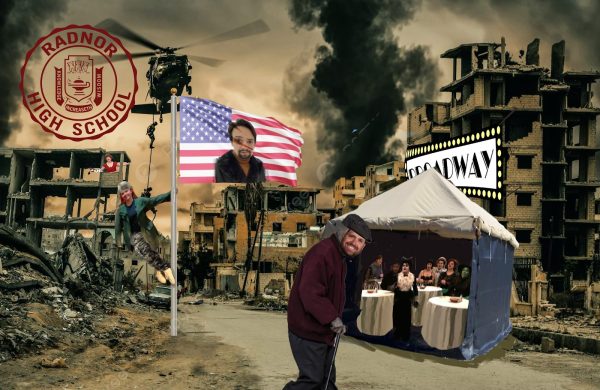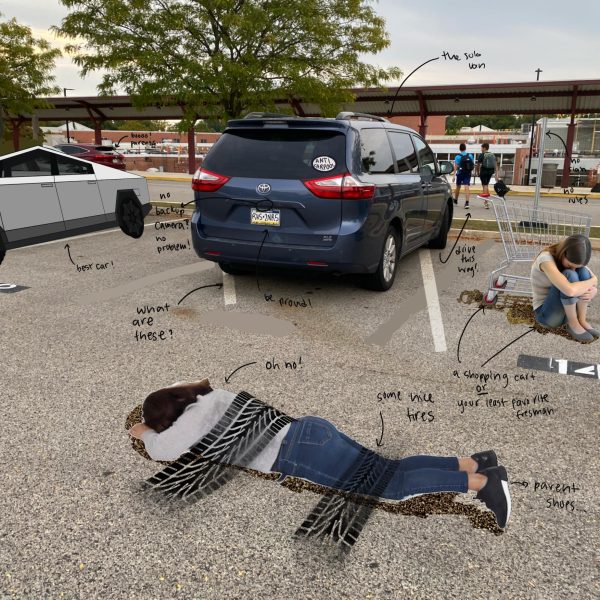The Angel of Television: Fred Rogers
November 16, 2018
This past summer, the documentary “Won’t You Be My Neighbor” regarding the extraordinary man Fred Rogers was released into theaters. Mister Rogers was the producer of the children’s show “Mr. Rogers Neighborhood” in which he encouraged children to express their emotions with honesty and addressed the value of inherent worth and unconditional love. He also addressed pressing political issues and difficult concepts for children to comprehend and follow. My parents, both former avid viewers of Mr. Roger’s show, ushered our family to the movie theatre on the day of its release. There, I witnessed a daughter handing her father a tissue, and everyone wiping away tears of gratitude for Rogers’ influential presence.
Why am I so touched by a children’s television show I have never even watched? The phrase “radical kindness” has been used to describe Mr. Rogers’ personality on the show and why it brought so many to tears, but this phrase is too abstract to capture the essence of his incredible character. Granted, Mr. Rogers was extraordinarily kind, but it was the quality of empathy he incorporated into his show that moved me. He understood the uncertainty of childhood and that all children go through a time when they question their self-worth and value. The incredible thing about Mr. Rogers’ television show is that every concept he preaches is still relevant for adults and teenagers alike. For instance, we all long to feel loved and accepted for who we are. To be seen and comforted in our distress feels soothing and affirming. He made sure to tell you that he loves you “just the way you are” and that made all the difference. By repeating this phrase, he was able to show children that their lives have value simply because they exist and that they don’t have to do anything sensational to be deserving of love.
Mr. Rogers also touched children’s hearts and put into words their concerns through relatable figures, like a puppet who doesn’t feel accepted and comfortable. Daniel the Puppet, a shy lion orphan, is the voice for children’s feelings. In one particular episode, a distressed Daniel sings a song in which he questions his legitimacy and significance in a world that he feels alien to. He confesses to Lady Aberlin, a helpful adult figure in the show, “‘Sometimes I wonder if I’m a mistake, I’m not like anyone else I know…most of the time I’m weak and I’m mild, do you suppose that’s a shame?’” Lady Aberlin assures him that Daniel is loved as he is, but Daniel is not completely comforted. A duet ensues between the two of them, Daniel’s melancholy song melded with Lady Aberlin’s positive helping voice. Mr. Rogers understood that it was not possible to completely banish children’s concerns and insecurities, but it is extraordinarily helpful to have an adult figure guiding and supporting the child while he/she goes through troubling times..
Mr. Rogers’ television show aired from 1968 to 2001, and throughout these years Mr. Rogers addressed pressing issues such as racial discrimination and the 9/11 catastrophe. This aspect of the show was especially compelling. At a time when black people were being removed from public swimming pools, Rogers invited a black man over to bathe their feet together. During times when the world seemed too horrible to imagine, and children found themselves unable to comprehend what was happening, Mr. Rogers calmly showed children what had happened in a dialect which people call Freddish, a language specially adapted for children by Mr. Rogers. When President Kennedy was assassinated, Mr. Rogers gently explained to children the concept of assassination and what happened on that fateful night. During frantic times, when it was difficult for children to understand what was happening in their world, Mr. Rogers helped them cope with the feelings they were experiencing. “The world is not always a kind place,” Rogers once said. “That’s something all children learn for themselves, whether we want them to or not, but it’s something they really need our help to understand.” Mr. Rogers never sugarcoated anything. He treated children as adults and never downplayed any idea that might have been deemed too harsh for children’s ears.
So how does all of this affect us today? Every aspect of Mr. Rogers philosophy—acceptance of all people, fearlessness in addressing difficult topics, and the ability to find the good in every situation no matter how hopeless it might seem—go hand in hand. Last Saturday, in the heart of Mr. Rogers’ hometown, eleven innocent people were murdered on account of their spiritual beliefs. Fred Rogers grew up in a house just a few blocks from the site of Saturday’s deadly shooting. It is difficult to imagine such a heinous act could be carried out because of pure hatred for an ethnic group. But even in the bleakest situations, Mr. Rogers found a way to be positive. He famously said, “Look for the helpers. You will always find people who are helping.” In the midst of an unfathomable situation, it is easy to forget that there are kind-hearted people with good intentions; we often get trapped thinking about the select hateful people who commit terrible acts and fail to recognize the majority of the people who are trying to help. Look for the helpers. Lavish bouquets of flowers surround the site of the shooting. Thousands gather at a vigil for the victims. Countless stars dangle from street signs and police barricades in memory of the deceased.
Every day in Mr. Roger’s neighborhood was a beautiful one. It was a safe place where every child knew himself or herself to be Mr. Rogers’ special friend. He taught young viewers about kindness, acceptance, and friendship. Routinely, he would arrive at his modest TV home, hang up his coat, zip up his cardigan and change his shoes, all the while welcoming children with a gentle and warm song. An innocence filled ode to getting along with each other. How would this song play out now? I believe it would sadden Mr. Rogers to see the divisive society of today. He would encourage us to break down the barriers of race, religion, and politics and see each other as humans who are full of love. In today’s age, we lead with fear. To arouse support, our politicians invoke fear and uncertainty among citizens. The reason why so I and so many others spent hours weeping was because we miss these honest qualities. Because pure, unselfish kindness seems so rare these days. We are nostalgic for simpler times when people led with trust and kindness. I believe we can have a beautiful day in the neighborhood once more.






